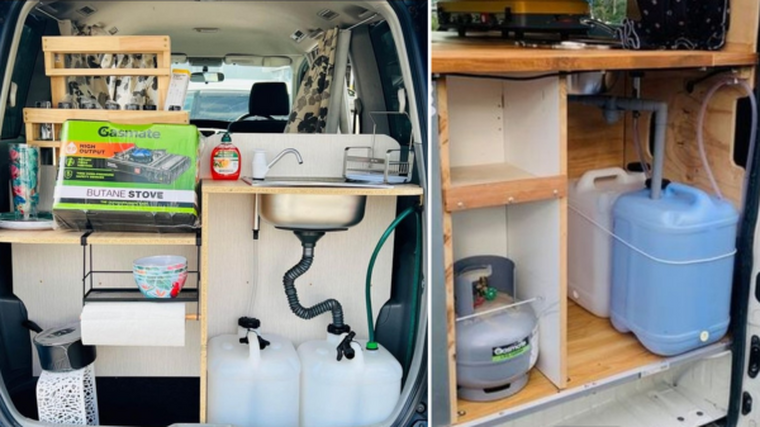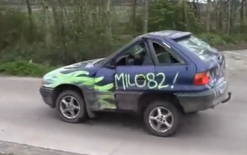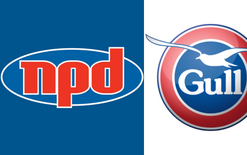Freedom camping issues at fore

Changes to New Zealand’s freedom camping regulations are causing significant concern across the rental-vehicle industry.
While there has been some relief with a recent revision to allow unventilated cassette toilets in campervans, there are still challenges.
“These are chiefly the requirement for those toilets to be permanently fixed and the proposed timelines to enact the changes, which remains as December 7, 2024, for rentals and June 7, 2025, for privately owned vehicles,” says Ben McFadgen, chief executive of the Rental Vehicle Association of NZ.
“However, the government has now signalled that it intends to extend the timeline for private vehicles by up to 24 months, which we believe will cause more inequity in an already diverse campervan market.
“There will be radically different vehicles on the road for a long period of time. It will likely also lead to an increase in cheaper private vehicles being bought and sold at airports by backpackers – the very scenario these regulation updates intended to remedy.”
The photos above, supplied to Autofile Online by the association, show two campervans with green compliance stickers claiming to be self-contained when they are clearly not.
The ventilation requirement for cassette toilets was removed in August and “shouldn’t have been there in the first place”, says McFadgen.
“It cost the industry hundreds of hours in administration because of a lack of understanding by the regulators. They were advised about the unsustainability of requiring cassette toilets to be ventilated. They went ahead and did it anyway.
“It’s been changed, great, except we now have small unventilated chemical toilets permanently fixed into campers. They will be a nightmare to clean and keep sanitised.
“Operators used to be able to remove the toilets and clean them well away from the vehicle. Now they have to set up a viable, effective and safe process for in-vehicle cleaning that protects the campervans, operators and travellers. This has the potential to go well south.”
McFadgen adds there’s also little, if any, evidence showing a permanently fixed loo will be used more or easier than the previous portable chemical toilets.
“And there is apparently nothing in the new certifying test requiring the ability to use the toilet with the bed made up.
“This was a requirement under the previous regulations which helped maintain some form of standard. Now that’s gone, we are concerned that toilets will be ‘permanently fixed’, but very difficult – if not impossible – to use. It will be up to certifying authorities to check they still can be, I guess, if it’s even on their radar.
“Regardless, if you consider the proposed timeline for the compliance of rental and private vehicles, we believe there’s a major problem looming for New Zealand tourism.
“It’s October and the number of rentals that have been certified is around 3,000. Depending on who you talk to, there is another 2,000-4,000 to go before December 7.
“Problem is, we’re already hearing of vehicles that have been certified under the new green warrant, but fall well short of the new regulations. They are being sold on Trade Me and Facebook. All that’s happened is they’ve fixed the toilet down.
“It’s now easier than ever to have your vehicle certified. Some of the work we’ve seen is very shoddy and should never have been passed.
“Operators following the rules and doing it properly are spending $1,000 per vehicle in an already tight economy. They are also having to throw away perfectly safe and usable toilets to meet the new regulations. That’s great for resource sustainability, isn’t it.”
McFadgen points out there are challenges around enforcement. “How is a council inspector going to monitor compliance at a busy campsite, during peak season, at night and often in a remote area. Suffice to say, we don’t think enforcement will be consistent and we’re concerned about potential damage to New Zealand’s brand.
“Then you look at the confusion in the peer-to-peer rental sector. They’re not even clear on the fact that private individuals need a rental-service licence, not just the sharing platform. Let alone the recertifying date, which for them would be December 7. All in all, we think it’s going to get messy.
“What we simply don’t understand is what the beef government has with the rental-vehicle industry. The vehicles we provide are significantly better maintained and set up compared to private vehicles.
“They’re safe, we educate on travelling responsibly and provide 24-hour support to people exploring New Zealand in our vehicles. Yet we are being effectively penalised because of this.
“It’s not like we have money growing on trees. The economy is in recession. Tourism forecasts are low. What is it about business that this government doesn’t understand?
“It didn’t have to be like this either. If the government had listened to industry, and if the Ministry for Business, Innovation and Employment had displayed some common sense on timings, we wouldn’t be in this position. Now New Zealand is about to compromise its brand again and our economy will take another hit. It’s all so unnecessary.”





